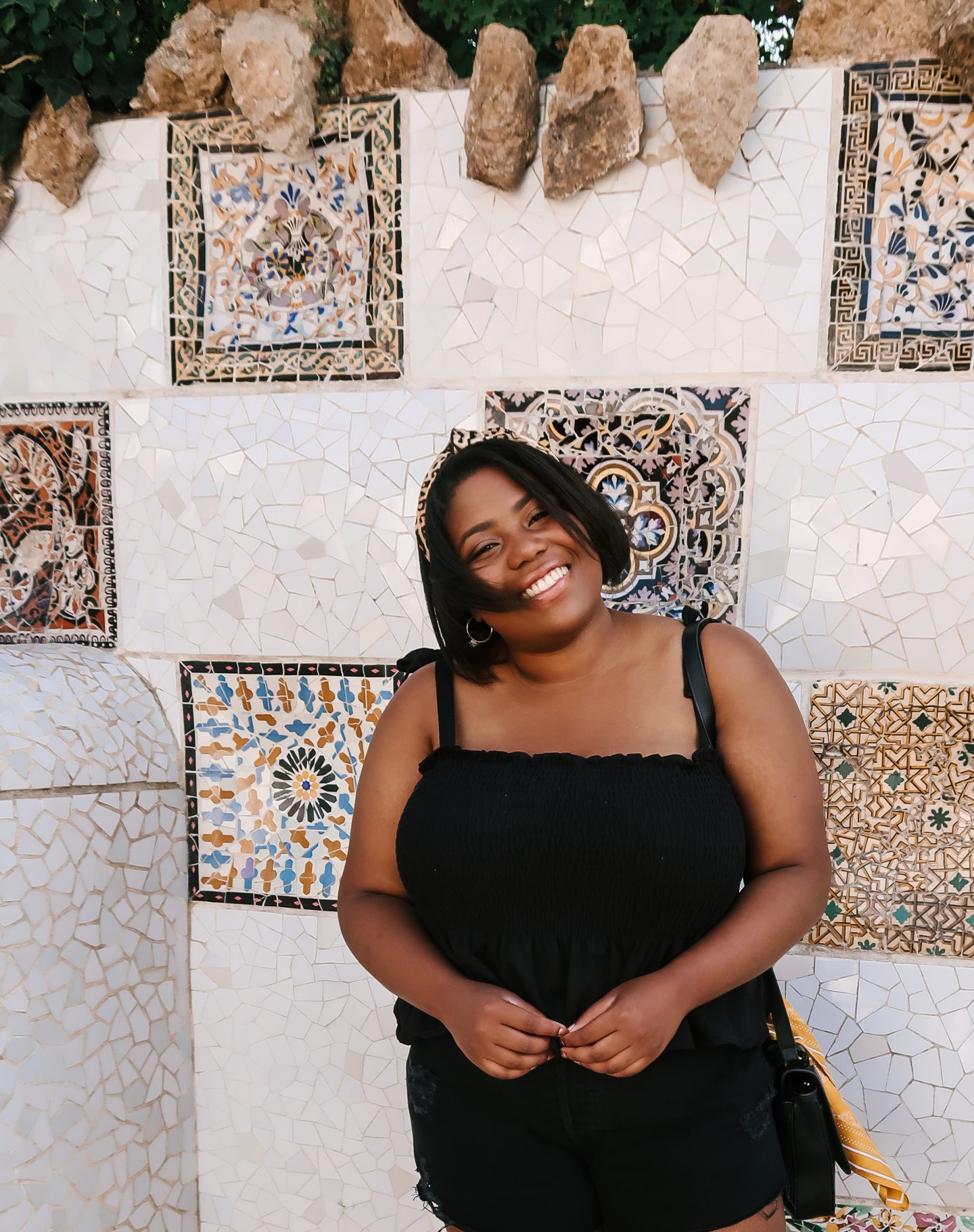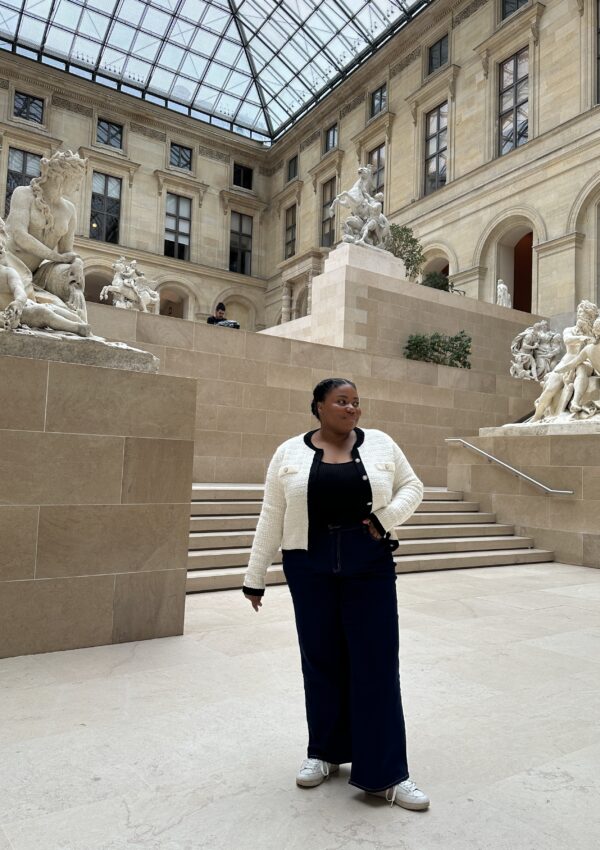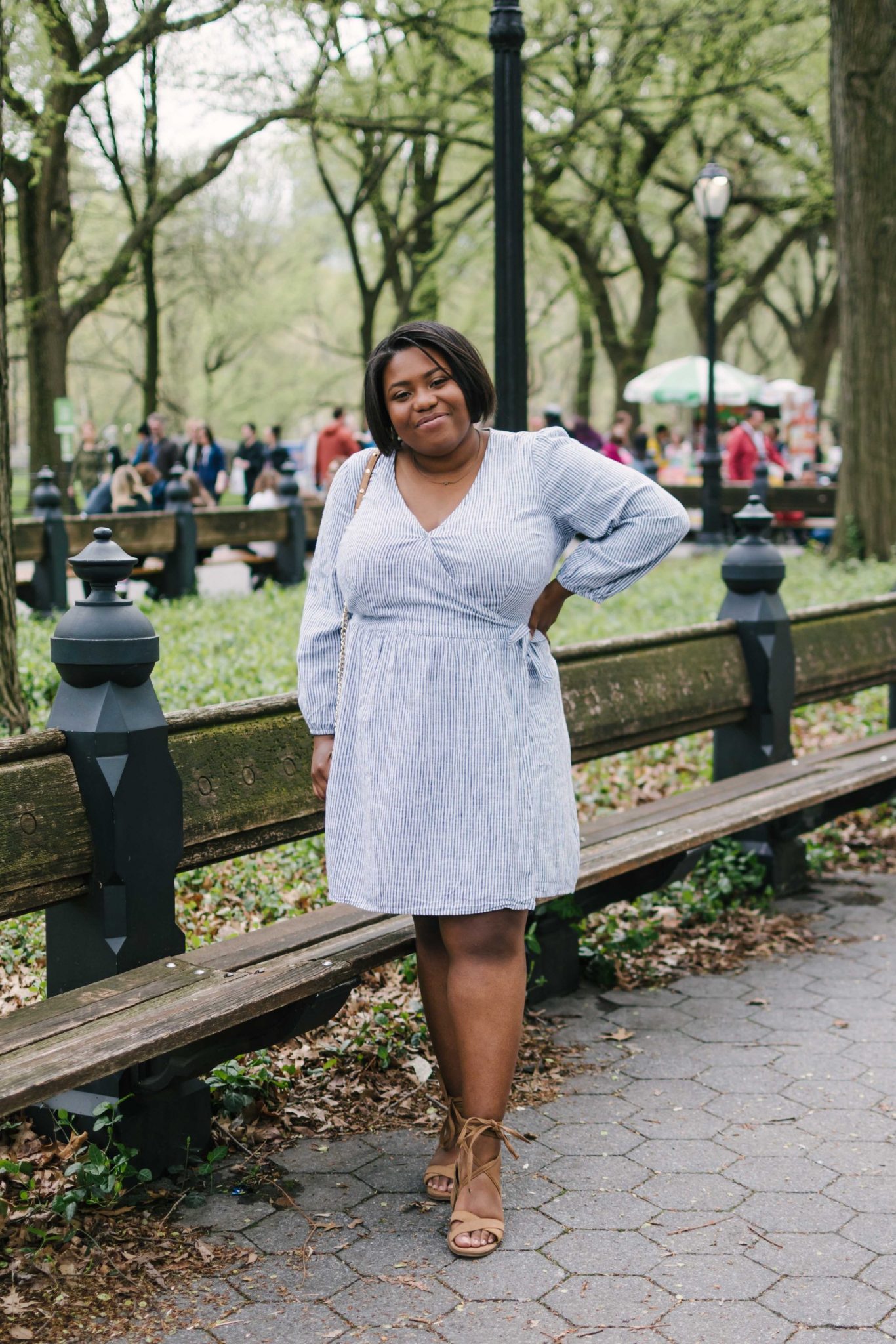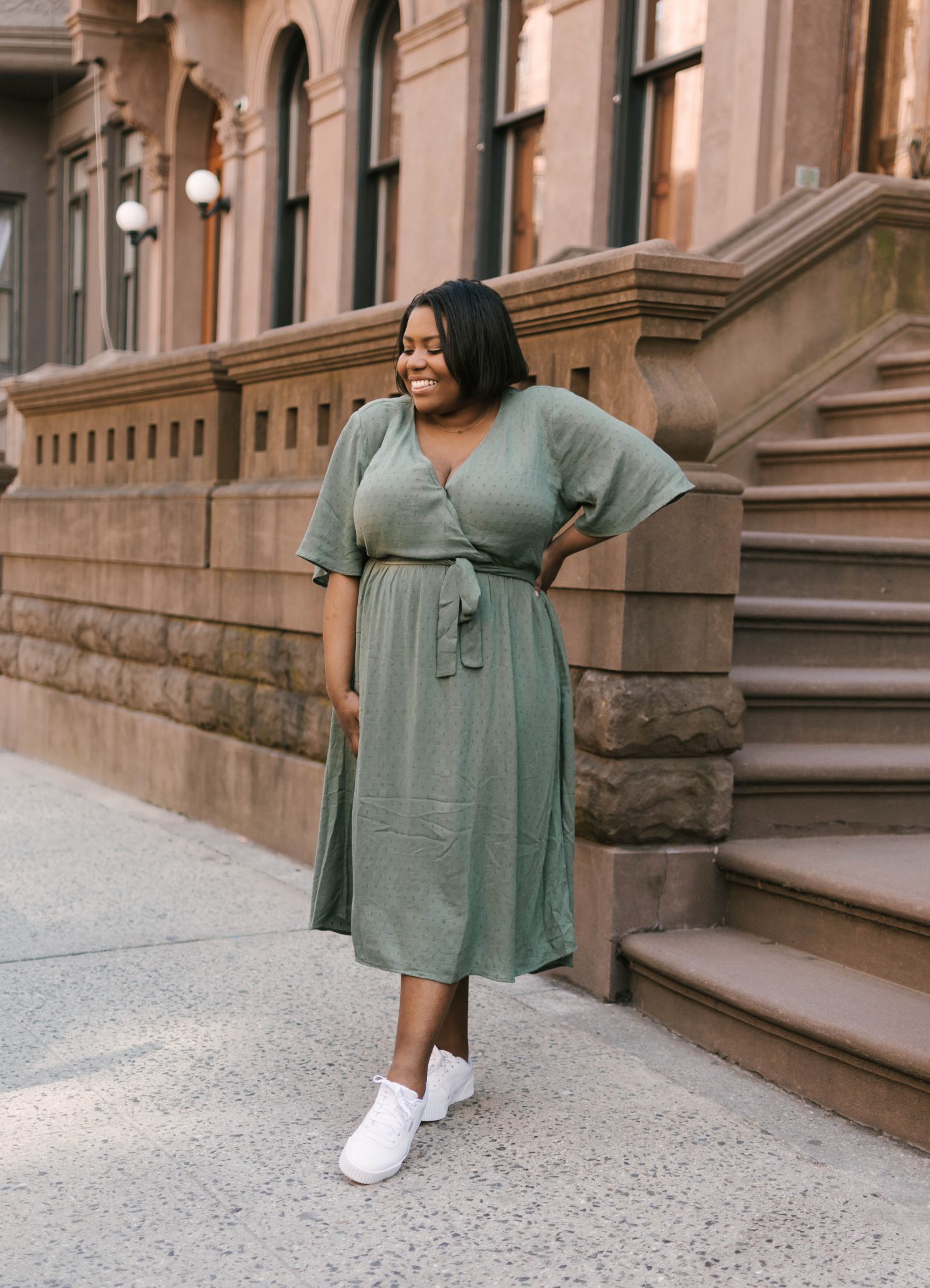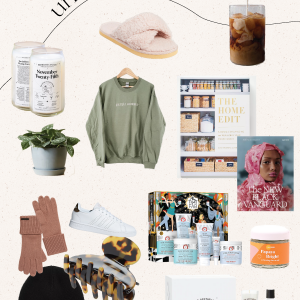I LOVED my Ph.D. interview season. I traveled all over the country, met some of the most brilliant minds in the biomedical sciences, connected with other students, and finally had time to breathe after a grueling undergraduate course load. In the wake of COVID-19, Ph.D. interviews are going to look a lot different. Today, I’m sharing my tips and tricks for how to virtually shine in front of faculty interviews. We’ll also cover what to ask and things to consider for making that big, final decision.
This post is geared towards students interviewing for admission to biomedical science programs. All opinions are my own.
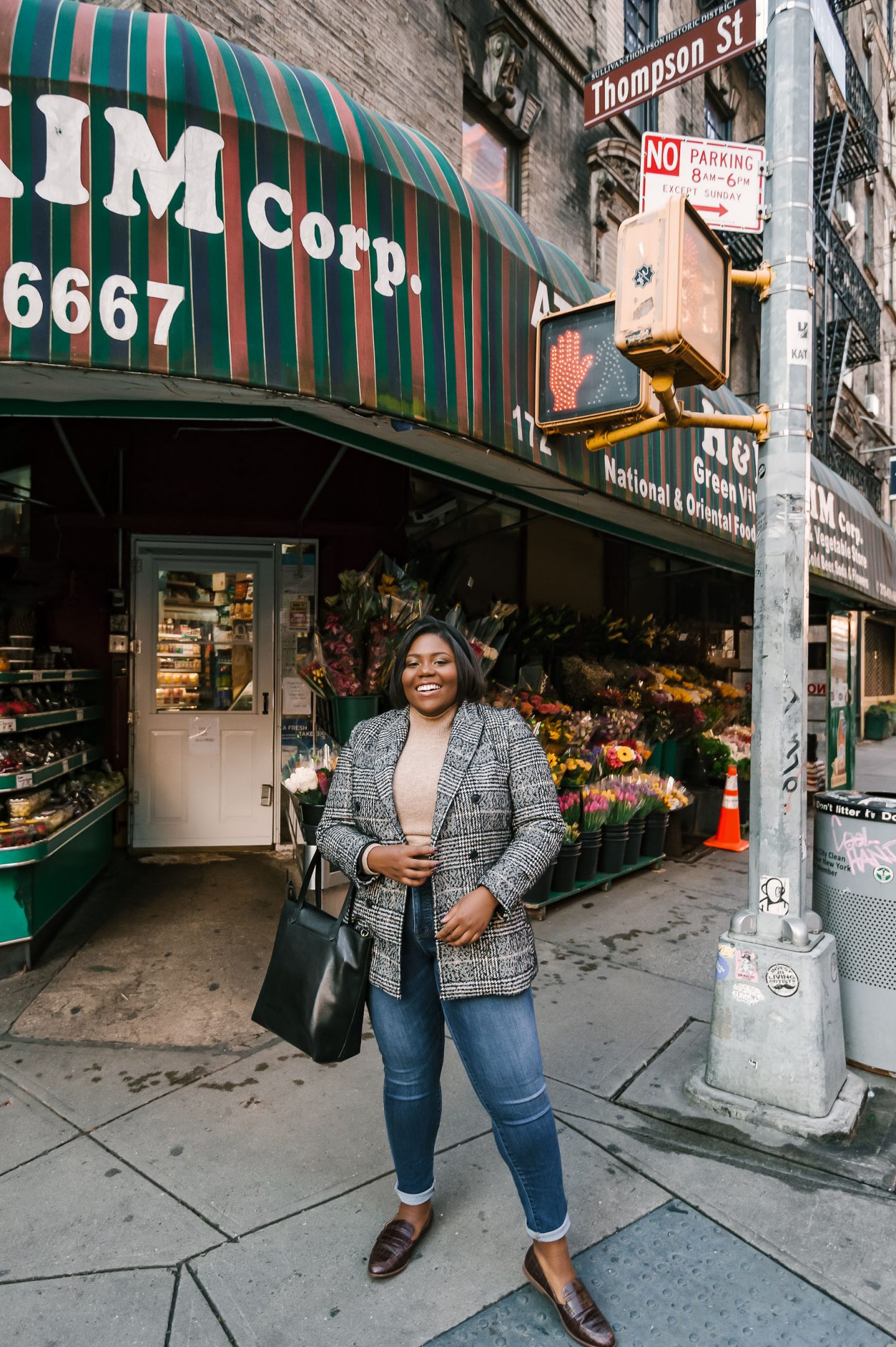
My Ph.D. Interviews Experience
I completed all of my Ph.D. interviews in the spring of my senior year of undergraduate studies at the University of North Carolina at Chapel Hill. While I applied to (and was invited to interview at) 12 programs scattered across the continental US, I accepted six of these invitations at schools in Southern California, Nashville, Dallas, and New York City. These programs were a mixture of umbrella programs (Biomedical Sciences) and department-specific programs (Molecular Pharmacology). My earliest interview was in early January and continued into early March.
Ph.D. interviews were 2+ day affairs: one day for formal programming and additional time for activities with current students. Most schools started with a primer on their program: tracks, courses, stipend, benefits, the qualifying examination, thesis defense, housing, etc. Umbrella programs usually had breakout sessions where I could meet the various program directors. I completed anywhere from 4-7 interviews mostly with random faculty from my intended department. Sometimes (read: rarely) schools were able to match me with the faculty that I had listed on my application. A lot of the programs also prepared medical center/research building tours and housing tours.
Activities with current students ranged anywhere from dinners, shows, nights “out on the town”, cruises, etc. We were able to ask unfiltered questions about the program and their experience which was truly instrumental in making my decision.
I heard back from most programs 1-2 weeks after my interview weekend. However, my first two interviews took about 2-3 weeks to get back to me. I was expected to send in my decision by April 15th-May 1st. I sent my notifications in early April.
My Ph.D. Interviews Mindset
Your Ph.D. interviews are an opportunity to reinforce the strengths you showcased in your application AND to learn more about the program. These institutions are simultaneously assessing and recruiting you. I always approached my interviews with the assumption that at the end of the day I would have the power. Confidence is key, as they say.
Other things I wish I would have known before I started my Ph.D. –>
Virtual PhD Interviews & Answering Your Questions
Obviously, these are ~unprecedented~ times and most of your interviews will be taking place virtually. Honestly, I’m so sorry! Interviews were a brilliant time to connect with other students, meet a ton of current graduate students, and get a feel for the surroundings. Make sure that the school and program are a good fit. It’s a big deal. However, I’m sure that most schools are preparing alternatives to account for all of these shortcomings.
One thing I do want to stress is to never feel uncomfortable reaching out to the program directors and advisors. Their job is to answer your questions and supply you with all the knowledge you need to aide in your decision making! Take advantage of it. They’ll also be able to connect you with current students that may be able to offer a different perspective.
I asked my Instagram followers what questions they had when it came to Ph.D. interviews and this what they asked. Be sure to follow me over there @gabbywhiten to always stay in the loop for new posts and for the chance to ask me questions!
Q: How do I stand out from other students during the interviews? Humor? Appearance? Help!
A: The best way to stand out from other students is confidence. I always felt that as a younger student, I would be at a disadvantage when compared to Master’s students and research technicians. I needed to be sharp in fielding questions about my research and confident in my answers about why I was pursuing a Ph.D. and what I hoped to achieve in the long run. Faculty love passionate, curious, and knowledgeable students.
Humor: I say it’s dangerous territory and should be avoided! Appearance: I say unconscious bias is a big issue when we think about virtual interviews. I found that there was an unspoken dress code depending on where the school was located. East coast schools [“the elites”] all follow the business dress code to a T. Whereas, my interviews in Southern California and Texas had a much more relaxed business casual dress code.
I think you should wear something that you feel comfortable and confident in! I also highly recommend that you find a quiet, well-lit space with a neutral background. If that’s not possible, don’t fret! You can try a virtual background and headphones!
Q: Can you please provide some sample answers for some possible interview questions?
A: Nope! All interviews vary so heavily that this would do more bad than good. However, be prepared to answer anything that you discussed in your application.
Q: What did you find most helpful when preparing for Ph.D.interviews?
A: Most of your interviewers will spend a significant amount of time asking about the specifics of your research experience. I found it extremely helpful to write up a short abstract of each of my research experiences. What was the research question? How were you, tangibly, involved in the project? Describe your experiments and data analysis? Did the experience result in publications or presentations? What was your role in the manuscript preparation process? What did you learn from that experience? And, what would you do next if you were to continue on that project?
There’s also an interesting phenomenon where students always spend a ton of time reading the publications of their interviewers the night before the interview day. Don’t do this. You’re interviewer will be asking you questions about your research, your goals, your interests, etc. Focus your attention here. You can peruse the abstracts for papers that interest you and prep a few questions! Many interviewers will take the second half of the time to explain their research to you. “Can you tell me more about your work in __________?” is also the easiest question to drop in response to: Do you have any questions for me?
Q: What are some factors to consider in choosing a program?
A: Course requirements! Stipend and cost of living! TA requirements! Faculty that match your research interests! Location and distance from family! Program size! Program funding! Resources for students! Grading and exams! Publication requirements! Relocation stipends! General student well being! Counseling and support systems! Clubs and organizations!
Q: Other than academics and research, what makes a candidate stand out?
A: (Un)fortunately, faculty are weighing your academics and research heavily! Some will only consider these things. But, dedication, passion, persistence, and curiosity are all key characteristics of great scientists. If you can communicate how your extracurricular activities or life experiences have shaped the science that you want to do, you will stand out this way! If you do have a fun fact or interesting hobby, you can always share it! Those will always serve as great ice breakers and will make your interview memorable!
Also, showing up on time and prepped with questions is a great way to show up on the right foot.
Q: Do graduate students provide input to the committee on who they think should accept?
A: Yes and no! Some schools have an official student interview. Some don’t! Serious concerns about prospective students are brought to the attention of the Program Director. However, a lot of schools have no built-in way for students to contribute to a student’s acceptance or rejection in any real meaningful way. This is usually communicated to applicants beforehand!
Q: Share your answer to “Tell me about yourself.”
A: I’m Gabby Whiten. I’m currently a Ph.D. Candidate at New York University School of Medicine and I’m interested in the mechanisms of human disease and the development of therapeutics. My project focuses on the dysregulation of iron metabolism in neurodegenerative disease. I have a Bachelor of Science in Chemistry from the University of North Carolina in Chapel Hill.
While I was an undergraduate student, I conducted research in the Center for Integrative Chemical Biology and Drug Discovery in the Eshelman School of Pharmacy. I designed and synthesized MYC inhibitors using pyrimidine scaffolds. During my summers, I completed a research fellowship at the University of California San Diego in Richard Daneman’s Lab where I studied inflammation and the blood-brain barrier in multiple sclerosis. I also designed and synthesized a library of arginine mimetic small molecules to act as PRMT5 inhibitors for the treatment of pancreatic cancer at Baylor College of Medicine in Damian Young’s Lab.
I hope to pursue a career in drug development, science policy, and science communications. I’m also a member of the Vilcek Institute Black Student Association, the Vilcek Student Diversity Initiative, and the Student Interview Leadership Team. In my free time, I love visiting art museums, seeing Broadway shows, and trying new restaurants in the city!
Q: What’s your pre-interview routine? The day before, an hour before, minutes before, etc.
A: I love this!
The Day Before: 8-10 hours of sleep! Review my personal statement and other application materials. Research and lightly peruse website/publications of interviewers. Prepare a notebook with questions and notes. Relax and avoid stress triggers.
The Morning Of: Wake up with plenty of time to get ready. Good breakfast. Avoid sugary coffee. Review notes and questions.
The Hour Before: Enjoy other portions of the interview programming. Ask questions. Meet students.
Minutes Before: Power pose [I’m so serious]! Listen to a bop if I have time! Drink water!
After: Make a small journal entry of your feelings immediately after the conclusion of the interview weekend. How did the students and faculty make you feel. Initial reactions to program requirements. Pros and Cons!
Q: Were you asked any questions during interviews that were super unexpected? If so, what?
A: Not really! I had some people ask me to draw or diagram my research on a whiteboard/chalkboard. Also, some people don’t ask you any questions and just explain their research to you the whole time!
Q: How to answer “where do you want to take your career?” If you’re not sure.
A: Be honest. I’m sure you have some inclination of things you may want to do down the line! Also, I was advised to always say that I wanted to stay in academia to be a PI. I wholeheartedly rejected that idea. If you don’t want to stay in academia, you need to be at an institution that helps to prepare you for other careers whether that be through official programming or connecting you to alumni.
If the program and its faculty are only equipped to lead you to careers in academia, it will make that transition more difficult. I was very clear that I wanted to go into life science consulting, science communications/policy, or drug development in industry. If you don’t want to lose “points”, sure you can say you want to go into academia. But, you also need to have a convincing answer to “why?”!
Q: How long are the Ph.D. interviews and approx. how many questions are asked?
A: My interviews ranged anywhere from 30 minutes to an hour! The number of questions range. It depends on how inquisitive your interviewer is. They will have the most questions on your previous research experience.
Q: What are some good questions to ask the interviewers?
A: Faculty Questions
“I would love to hear more about your research! I’m really interested in your xxxxxx project!” “Will you be taking rotation students next year?” “What attracted you to xxxx(the institution)?” “What cores and specialized equipment is available to researchers?” “Do you teach any courses?” “Are there opportunities for students to attend conferences?” “Would you say xxxx is a collaborative environment? What about the greater xxx area?”
Student Questons
“Why did you decide to come to xxxx?” “Do you feel the faculty are supportive of non-academic career paths?” “What mental health resources are available to students?” “Do you like living in xxx?” “Would you choose xxx again?” “Do you feel adequately supported financially?” ” What’s been the most rewarding part of your Ph.D. journey so far?” “Are you involved in any clubs or organizations?” “Was the adjustment difficult?”
Q: How much research over the programs/school should be done before the interview?
A: As much or as little as you feel comfortable with! They will tell you all the basics during the interview programming, and they’ll probably send an information packet as well!
I know that you’ll do great. Good luck with all of your Ph.D. interviews!! And, enjoy yourself!

